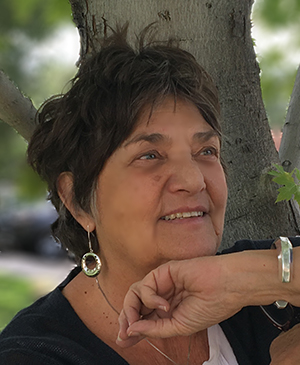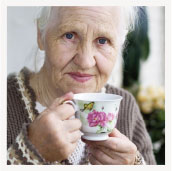Spiritual Care is not religious care. At Mountain Home Health we have a Spiritual Care Coordinator whose role is to coordinate visits from priests, deacons or ministers if the patients request it. Additionally, our Spiritual Care Coordinator (S.C.C.) has a degree in Hospice and Grief Counseling, is a member of the Spiritual Care Association and has decades of experience in non-medical End of Life care, so she also provides Spiritual Counseling if requested by patients or their loved ones.
The Spiritual Care Counselor (S.C.C.) does an initial assessment and if the patient agrees, spends time with them, offering a listening presence that invites patients to talk about what’s most important to them towards the end of life. Patients often identify elements of their lives that still provide comfort and identify their beliefs about death and/or the afterlife. Patients might address their concerns about dying, concerns about their loved one’s wellbeing or wishes for how the family will carry on when they themselves are no longer there.Patients typically talk about their life and in conversation with the S.C.C., might identify people they need to contact for forgiveness, closure or simply to express their appreciation for years of friendship and love.
Patients often review their life and values, celebrating the highs and acknowledging the lows, sharing stories of the losses they have experienced or regrets they might have, as well as talking about their accomplishments and revisiting situations that gave them the greatest joy or happiness. Encouraged by the comfort and safety that a skilled, experienced S.C.C. can provide, patients have the opportunity to identify the meaning in their lives and come to terms with life’s mystery.
In response to what is shared the Spiritual Care Coordinator might offer reflective listening, bring a prayer or poem to share, or take dictation and write cards or letters with the patient’s direction. The S.C.C. can help a person write an Ethical Will (documenting values and hopes) call a family meeting, offer instruction in mediation, lovingkindness practices or stress reduction or talk with family members who are struggling with their loved one’s terminal diagnosis.
Most importantly perhaps, the Spiritual Care Counsellor is trained to treat each patient with compassion, respect and dignity, without judgement about how they should respond to the experience of being identified as terminally ill.
Instead, the S.C.C. is practiced in seeing each person in a way that goes beyond their diagnosis or disease. Aware of the disease process, and constantly in touch with the Hospice Clinical staff, the Spiritual Care Counselor has been trained to relate to the wholeness that exists in each person and reflect that wholeness back to the patient during their interactions.
Spiritual Care invites hope and meaning and a continuing relationship to life, up to the last breath.






